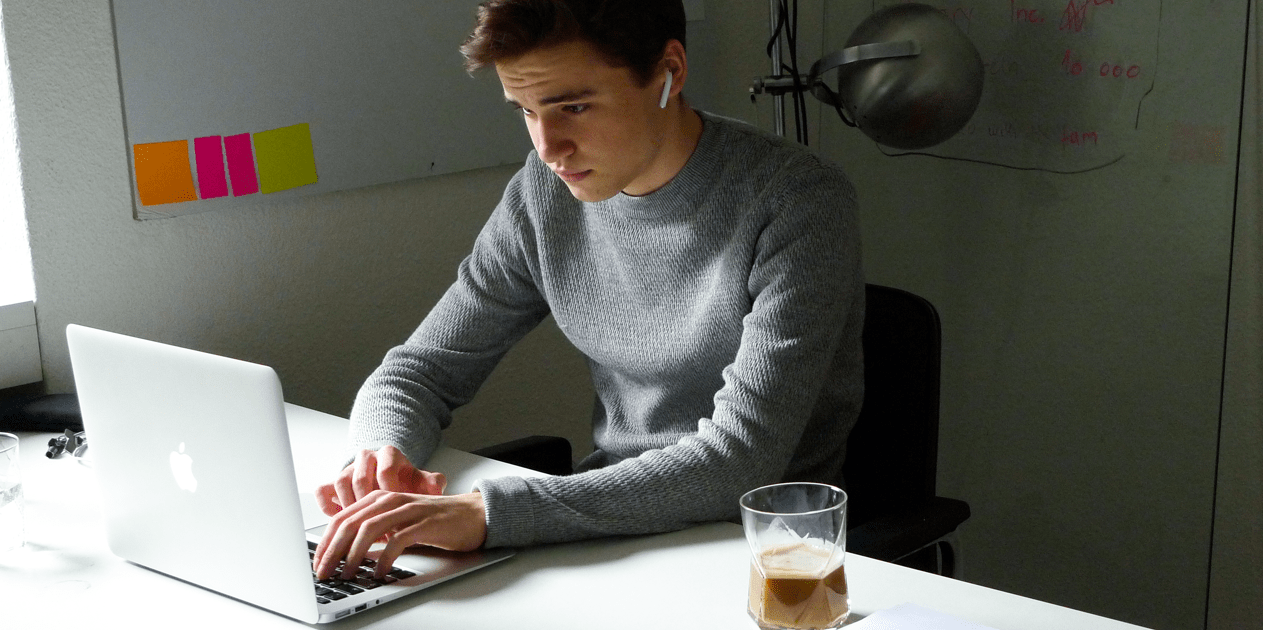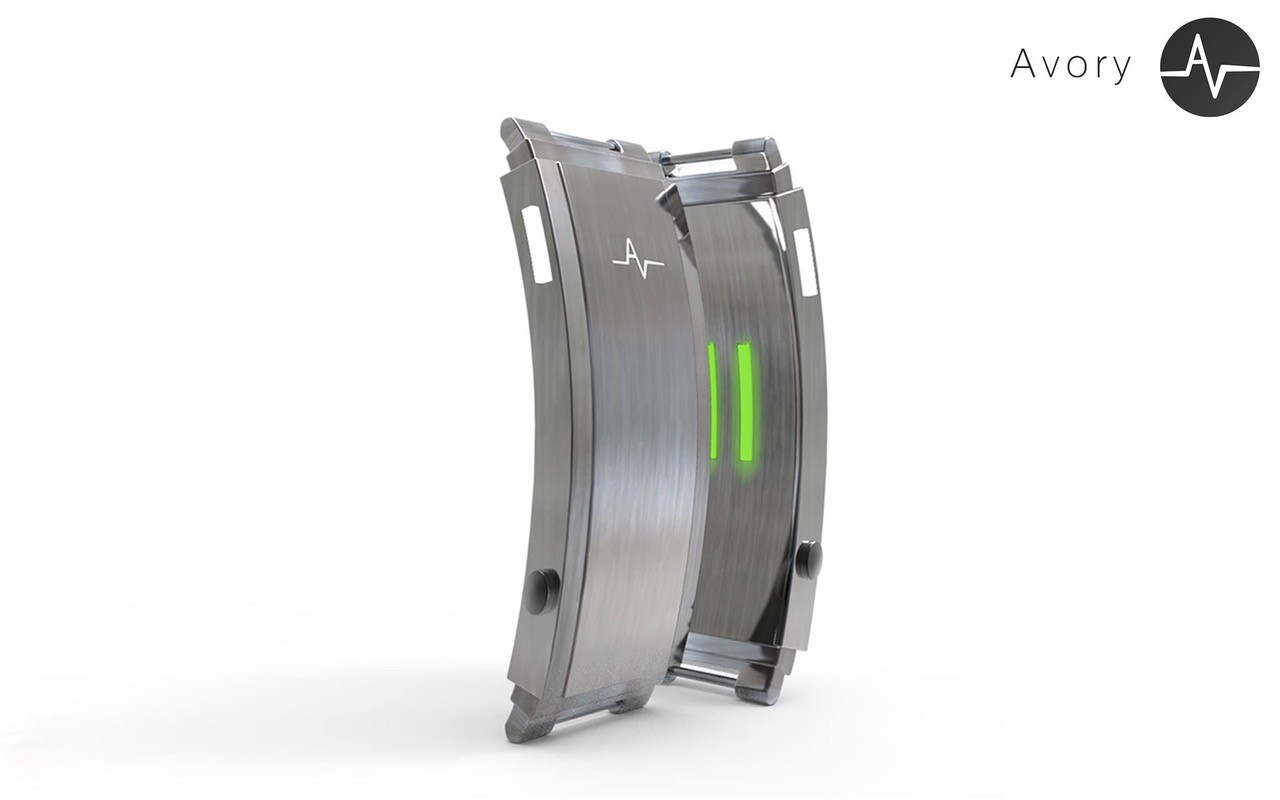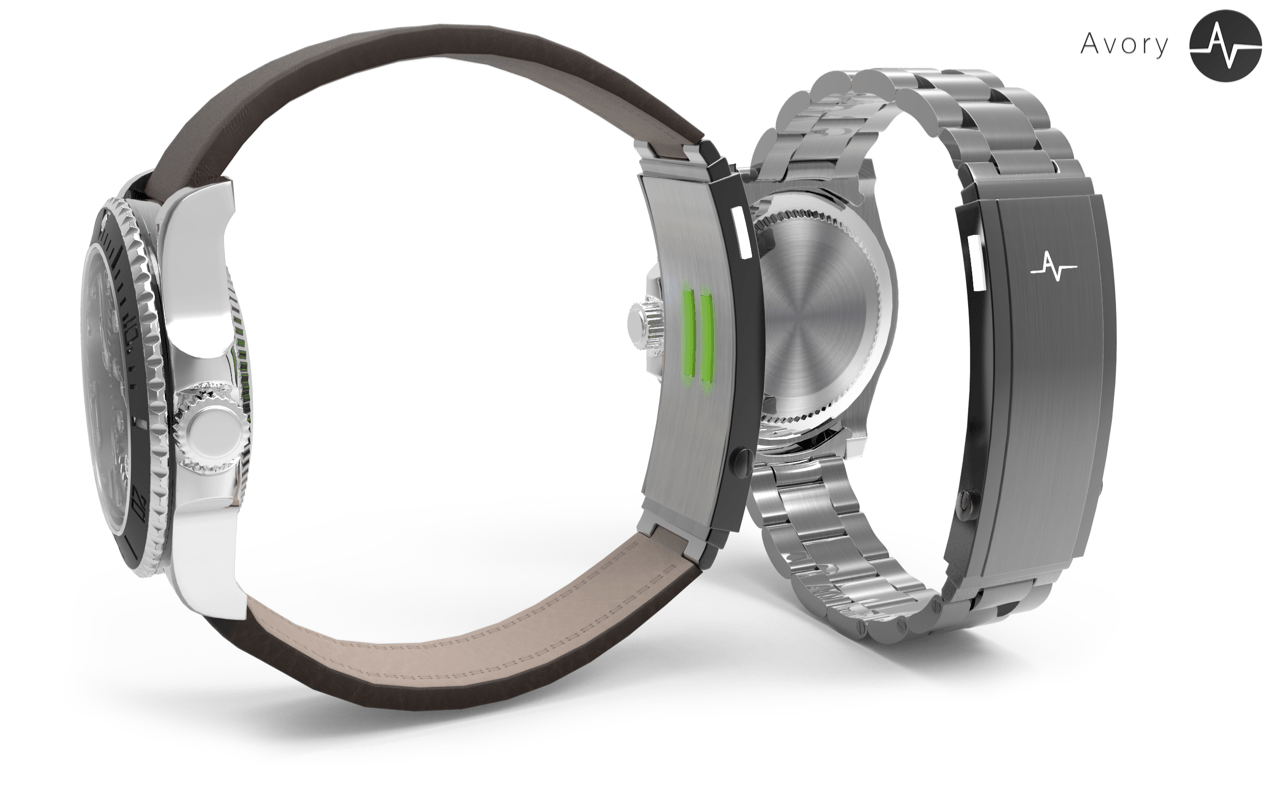Is it even possible to fail in starting a company?
Neil Heiland, an 18-year-old entrepreneur, tells you about his experiences during his work as “Marketing Assistant” at the Munich startup “KONUX” as well as about founding his own company. He is currently developing his innovation – technological wristband clasps for classical watches – and wants to sell this in the future through his company “Avory”. In the following interview, Neil shares with you his experiences and personal tips.
How come you started working in a startup?
This happened more or less by chance. By the end of 2015 I had developed some iPhone apps and had no experience at all about how to make anything similar to a business out of it. A friend of mine, Andreas Kunze (CEO at KONUX) had helped me several times in the past, so I contacted him. Since then I was allowed to work on my own projects in the KONUX Office and in between I also did a couple of things for KONUX. After a short time I was hired as a working student so that I could work for KONUX on the side. My way into the world of startups was rather a lucky coincidence.
What are your fields of activity at KONUX and how did you personally benefit from them?
Working at KONUX is an incredibly valuable experience for me. My current responsibilities are in the Marketing team, so I create presentations, work on the homepage and a couple of other things. If you’ve never worked anywhere before, you’ll grow with every task you get because you’ve often never done it before. In addition to the actual work, however, I find the general environment and everything around it – meetings, talking to colleagues, observing processes, etc. – much more important. These are skills that are universally important and that will also be decisive for me in my startup. To see how a meeting works or how different projects are approached is incredibly interesting, especially because I haven’t “learned” all this yet. Besides all this, I also earn a little bit of money from my work at KONUX, which I invest right away in my own projects. In short, working at a startup is more than just a means to an end for me, but rather a kind of test environment. I am the employee and see all the work that falls on the CEO’s shoulders, without doing anything wrong myself.
Why did you decide to start a company yourself? How did you deal with the requirements and the self-expectations?
The moment I became aware that I could do my own thing is still very clear in my memory. Although I’ve always sold my own products to others, there was this “aha-moment” when I realized that I could build something that offered some kind of value to others. The problem that I wanted to solve with Avory was not one that I observed from the outside, but one that affected me. I remember saying to a buddy, “A product like that is so great, why doesn’t anyone sell it? Why don’t ‘THEY’ do that?” I answered the question myself – “Why don’t I do that?” It was this moment when I understood that ‘THEY’ was not a separate group of geniuses, but people like all of us. That there were no special requirements to be an “entrepreneur”. In today’s society one only requires the following – the will, courage and stamina to really pull it through.
So there was no clear decision for me to found Avory, but somehow this happened automatically. Once I perceived the world as changeable, I couldn’t stop thinking about what I wanted to improve first.
You are about to start Avory as your own company. What is your idea behind the product “Slide” and Avory?
First of all I would like to briefly say that I actually have not yet founded the company. Now that I’m done with my final school exams, the whole thing will really start and the founding will make sense. I didn’t want to start before because it wasn’t necessary yet and I was never a fan of “starting a company just to do it”.
To understand the idea behind Avory, it’s important to know that I’ve always been a fan of gadgets and mechanical watches. As the smartwatch became more and more a topic, I was completely thrilled. It was almost like in a James Bond movie – having a device on your wrist that brings your vital signs and cell phone messages directly to your wrist. So I wore different smartwatches and fitness trackers until I got a luxury watch borrowed from a buddy. Although a watch primarily shows only the time, this is not the only reason for a more expensive mechanical watch. Watches are among the few pieces of jewellery that men can wear, so they serve as status objects, fashion accessories and often also as emotional objects, for example when a watch is inherited.
So I had the following problem back then – I wanted a functional, smart watch with the look, status and history of the luxury watch. The only solution? Two wrists, left the watch, right the wearable. Not an option for me. Apart from the fact that wearing the watch seems to be completely meaningless because of the wearable, it was too annoying for me and, as I have found out, for many others, too. So one of the two devices always stayed at home.
The solution: A smartwatch that looks like a normal watch? No. The technology becomes outdated again after a short time and no one pays several thousand euros for a watch that is no longer fashionable next year. So, what is needed is a device that can be easily integrated into any watch and thus unite both worlds: the world of traditional watchmaking with the world of innovative wearable technology.
“Avory Slide” is the first product and, in short, it is a technological watch clasp. It replaces the normal mechanical clasp of the watch and provides a subtle solution to the supposed incompatibility between the smartwatch and the mechanical watch.
After learning a lot at KONUX and gaining more and more experience as a founder, what knowledge would you like to share with our students?
I believe that startups and starting one’s own business can both provide great value. Even if you are not interested in starting your own company, you can learn extremely well at startups and gain your first professional experience. Instead of working in a bar during your studies, I would recommend simply asking around and going through the vacant posts at young companies. Most start-ups always need young talents for all kinds of tasks and many students fulfill the requirement for such a position.
I want to encourage everyone who is thinking of starting a business to do exactly that. Especially at a young age, the high risk that entrepreneurship entails is not yet so relevant. Most of you have probably hardly any running costs, no children, no real responsibilities. All this makes it a lot easier because the potential losses are much smaller. Over the years you get more and more responsibility for different things and it becomes more and more difficult to cope with the high risk – which does not mean that founding is only a sport for young people. In fact, I would like to say that it is not only a sport for experienced older people either, but that a young age and little experience can also be an advantage.
The motive of the founder is also important. It is not about money, at least it should not be primarily about it. Someone who wants to found a company in an industry that he does not like himself, but where a greater financial profit is possible, should not found it. I believe that a deep passion is necessary to withstand the pressure and high expectations. Only those who really love what they do will be successful in it, but we all know that, so I won’t say any more about it.
A lesson that I also experienced myself was to leave the ego outside. Often you probably start with the expectation that you are the “boss” yourself. Rather, one is – at least in the beginning – the person doing everything, and should be aware of it. Therefore, it is always important for me to see the bigger picture. Tasks that are boring and monotonous but important are only fun if you know what you are doing them for. This is the only way I can do the sometimes really annoying things without problems – because I know where I want to get and what that leads to.
The most important “tip” I can give is – listen to yourself and just pull it off. The many times I have been discouraged from making “Avory” a reality, or the possible failures waiting for me, are countless. You just have to listen to your own voice in those moments and leave everything else in the background. As long as you think you can do it, that’s all that matters. Because the only alternative is not to do this one thing and not to try in the first place. For me that would not be an option. I can’t find peace if I can’t work on “Avory”, so it would be unimaginable not to try the whole thing because of the risk. What is there to lose? Suppose I “fail” – my product doesn’t sell and I have to close the business in 2019. I’ve only lost possible money and gained an incredible amount of valuable experience that I would never have gained elsewhere. Given my age, I wouldn’t be “too old” to study or start the next business.
Finally, I would like to encourage everyone who thinks about trying their own thing to do it. Because even the biggest failure is outweighed by the experience gained. Whether we really fail in starting a business is all a question of perspective. I think we can only win.




